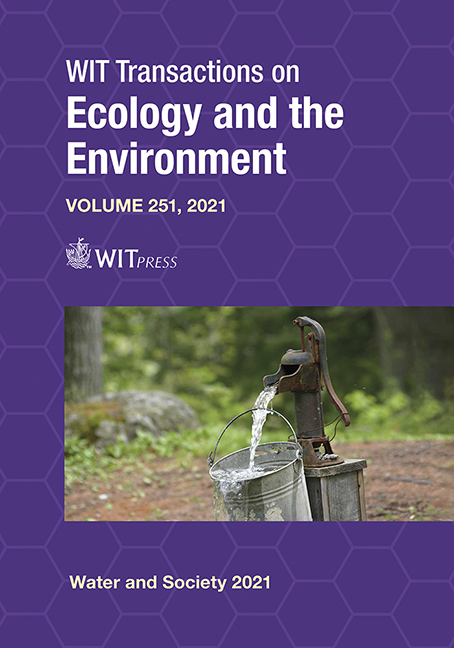HOW SOCIAL ARE FLOOD RISK MANAGEMENT PLANS IN SPAIN?
Price
Free (open access)
Transaction
Volume
251
Pages
11
Page Range
65 - 75
Published
2021
Size
268 kb
Paper DOI
10.2495/WS210071
Copyright
Author(s)
GUADALUPE ORTIZ, PABLO AZNAR-CRESPO, ÁNGELA OLCINA-SALA
Abstract
Due to the weaknesses of the technocratic model in providing integrated, sustainable flood risk management, a new approach has emerged aimed at promoting adaptive strategies by means of nonstructural measures, such as raising awareness among exposed populations and improving their adaptive response to risk. However, the emerging nature of these measures makes it necessary to analyse the way in which this social approach is being implemented in the day-to-day practice of flood risk management. Thus the aim of this paper is to assess the integration of social actions of risk response and public participation into risk management processes. To this end, 14 Spanish flood risk management plans (FRMPs) were reviewed and codified by means of a documentary content analysis. The coding process was designed according to the models of social capacity building and participatory assessment in flood risk management. The resulting analysis provided information on the characteristics of participatory processes in the development of FRMPs and on five areas of social initiatives for capacity building: knowledge, financing, motivation, governance and networks. The results revealed the limited quality of participatory processes due to procedural weaknesses and low representation of social actors. Also, social actions were focused on the promotion of risk awareness and showed a lack of technical detail that reduced their potential for implementation. Thus this paper argues that the social approach has not been transferred to practice in flood risk management, since the development of measures is still predominantly shaped by the traditional technocratic approach.
Keywords
disaster, natural hazard, social capacities, risk governance, non-structural measures, stakeholder, science-policy gap, social vulnerability





